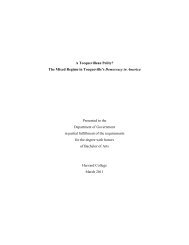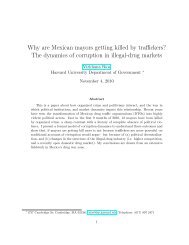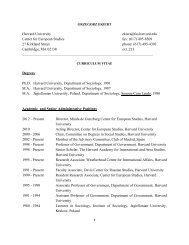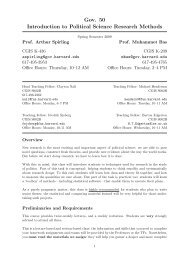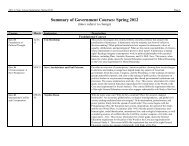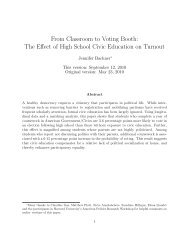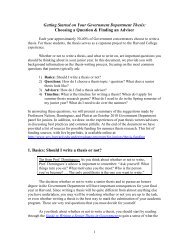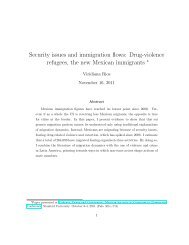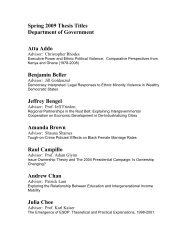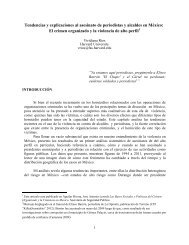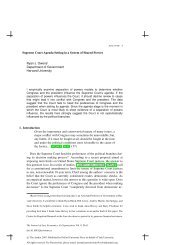1 Harvard University Political Theory Colloquium For 11 March 2010 ...
1 Harvard University Political Theory Colloquium For 11 March 2010 ...
1 Harvard University Political Theory Colloquium For 11 March 2010 ...
Create successful ePaper yourself
Turn your PDF publications into a flip-book with our unique Google optimized e-Paper software.
31 <br />
<br />
Ferrari accepts the standard cognitive reading that akrasia in the Protagoras is ‘a kind of<br />
ignorance’, while advancing his own stimulating understanding of the kind of ignorance<br />
involved as a second-order ‘ignorance of their own ignorance’ (<strong>11</strong>5).<br />
5 Philip Pettit and Michael Smith have argued in their account of failures of practical<br />
reason, among which they classify akrasia, that what matters is that desire and<br />
deliberation are in the right relation to each other. The point is not that reason is<br />
constantly exercising active control over desire (Pettit and Smith 1993), but that right<br />
relation is maintained through the ongoing exercise of what they call the ‘executive<br />
virtues’ which include temperance. These virtues maintain a balance rather than<br />
assuming directive control (1993:76-77). I find this account to resonate with that of Plato<br />
despite the fact that they take their own inspiration for it from Aristotle.<br />
6 Here Aristotle’s opposition between akrasia and enkrateia is helpful, as is his insistence<br />
that the phronimos would not exhibit either, but would rather exercise the self-control of<br />
full virtue. But Aristotle went wrong in his initial account of Plato’s Socrates in NE VII,<br />
misunderstanding the significance of the executive function of knowledge for him (even<br />
though at <strong>11</strong>47b he endorses Socrates’ conclusion after all). We may wonder whether<br />
Aristotle goes wrong in his accounts of Socrates and Plato deliberately, for his own<br />
purposes; I have documented such a case in his presentation of purported Socratic<br />
eironeia in Lane 2006, as has Garnsey 2007 in his diagnosis of Aristotle’s presentation of<br />
purported Platonic communism.<br />
7 Two further features of this view commend it to a comparison. The first is that it<br />
identifies rationality with psychic health (136). The other is that it rejects a sharp line<br />
between theoretical and practical reason, a line which Plato, notably, never drew: ‘from



